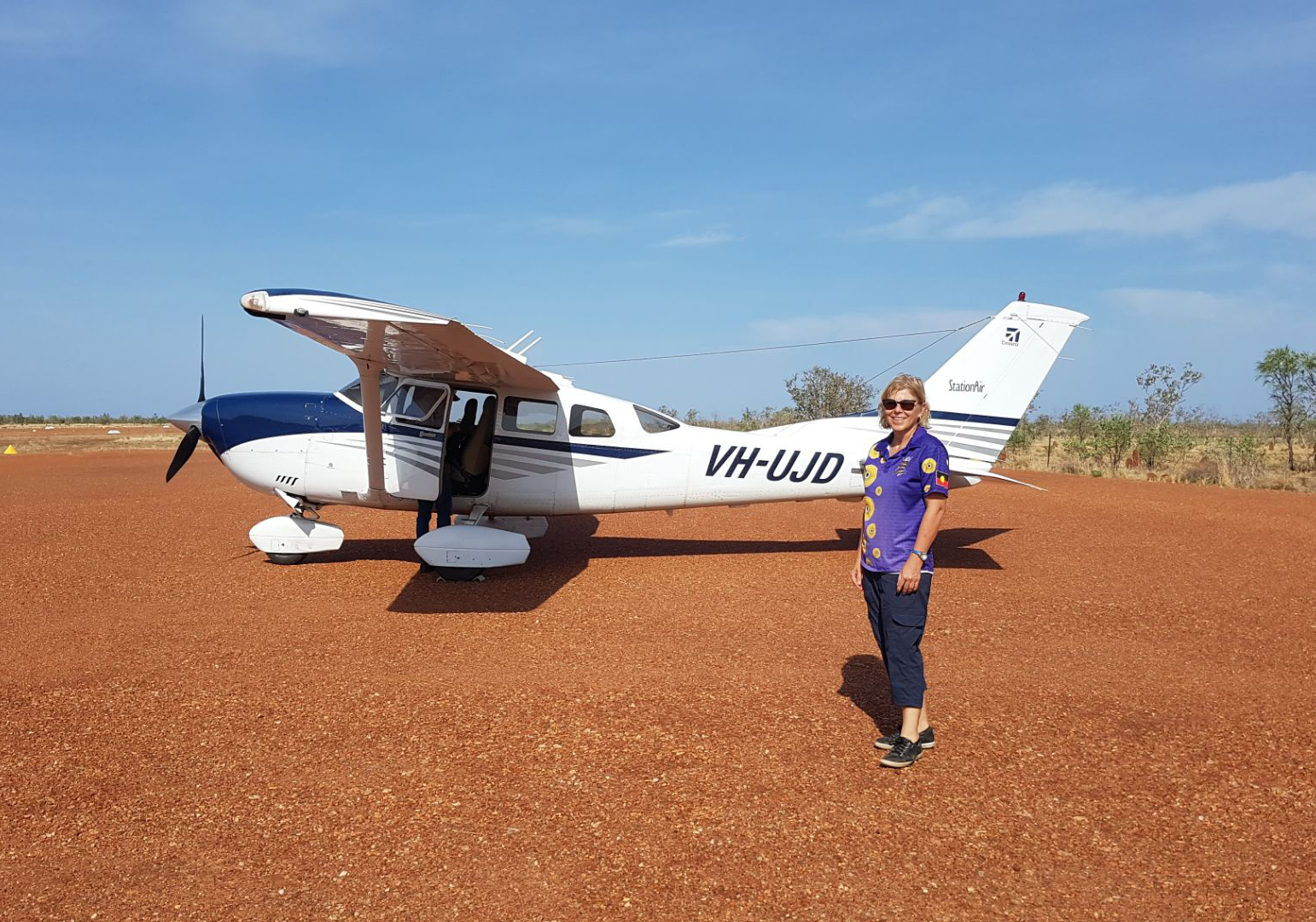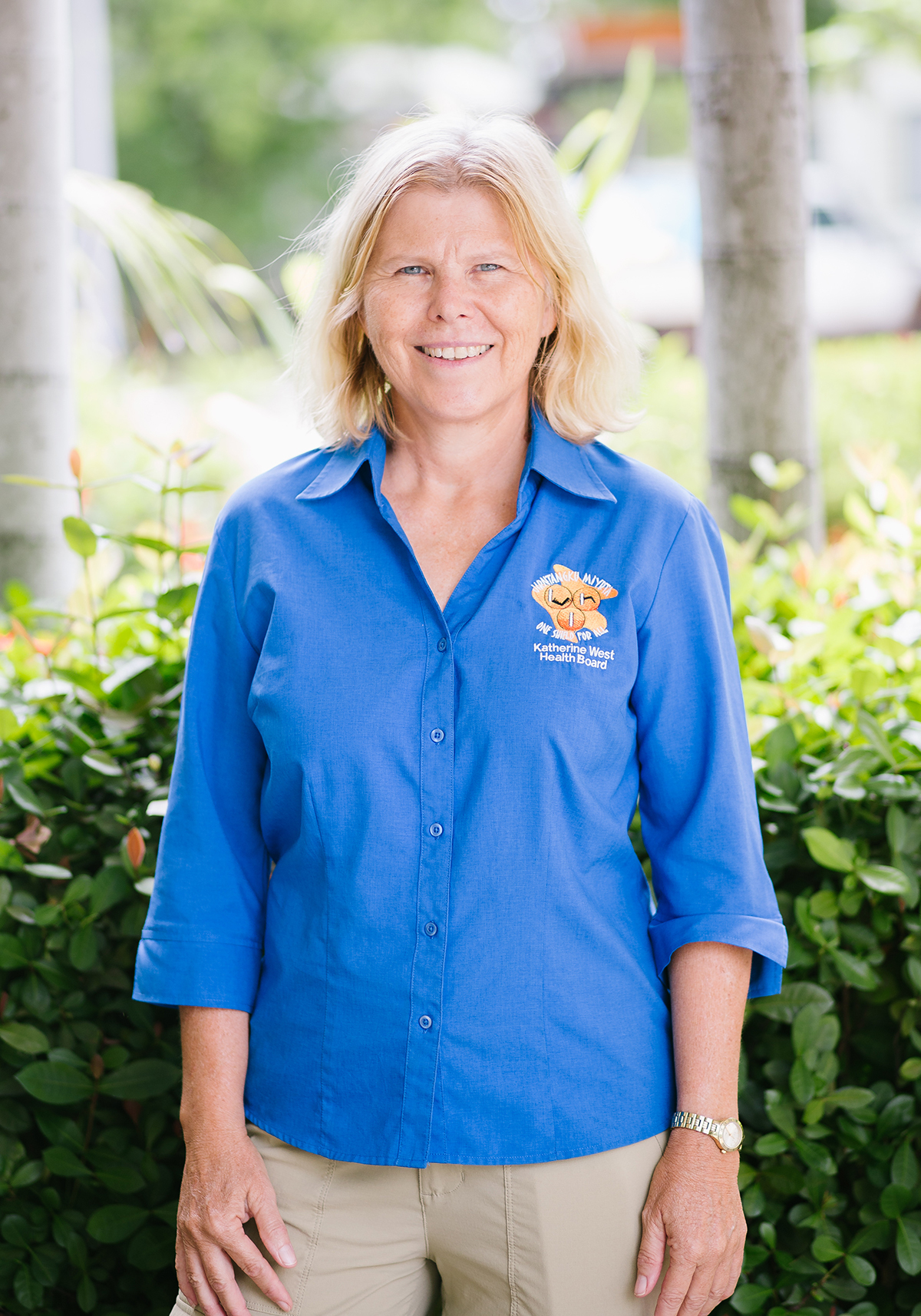This site may not work properly using older versions of Edge and Internet Explorer. You should upgrade your browser to the latest Chrome, Firefox, Edge, Safari, or any other modern browser of your choice. Click here for more information.
Your Stories
This is where we tell your stories, cover topical issues and promote meaningful initiatives.
Providing good preconception and antenatal care in rural and remote
Judy Burke has been working as the women’s and maternal health coordinator at Katherine West Health Board for the past two years.
“My focus is on health promotion in maternal health and the key message is for good pre- conception and collaborative antenatal care,” she said.
“My belief is that every woman is entitled to midwifery-led antenatal care but there’s often not the capacity in regional, rural and remote to have that care due to national midwife shortages.
“It often falls to the clinicians on the ground including RANs, GPs, and Aboriginal and/or Torres Strait Islander Health Practitioners to take ownership of the antenatal care portfolio with very few RANs with dual registration as nurse/midwife,“ said Judy, recognising that it’s not in the registered nurse scope of practice to provide antenatal care and it’s about capacity building with the aim to support RANs and GPs with education and training in women’s health.
Situated on the Katherine River, 320km southeast of Darwin, the Katherine West Health Board provides health service delivery across eight community health centres spanning 160,000 square kilometres.
The four main centres are in Kalkarindji, Lajamanu, Timber Creek and Yarralin. Smaller health centres are in Bulla, Nitjpurru (Pigeon Hole), Lingara and Mialuni (Kildurk). Remote mobile teams service communities and pastoral outstations further afield.
“We have just employed two midwives so there are now three of us as a newly formed team to provide a more holistic approach from preconception, antenatal and postnatal care with an aim to improve overall health of our women in the Katherine West region, particularly preconception – in diabetes management, weight, and good nutrition to enable a good start to life,” said Judy.
Katherine West typically has 30 – 50 pregnant women on their books.
“Initially when I first started as the only midwife in the region, I wanted to visit each site at least once a month, but then there was COVID and I realised every two months was more realistic.
“The antenatal record is a tool that can guide GPs and RANs with what they need to do, and it helps with clinical handover,” said Judy. “This is particularly relevant for Katherine West which has a high percentage of high-risk pregnant women. A point of prevalence investigation in August last year found of the 47 antenatal women, 80% had a significant obstetric history, pre-existing co-morbidities including Type 2 diabetes, high BMIs and complex social issues, including victims of family and domestic violence and trauma.
“We have a lot of diabetes (30%) in pregnancy, and for the majority of these women, this means they need to travel and stay in Katherine or Darwin in the last four weeks, before they give birth. Complexity; it’s not a one size fits all. It takes an individual and a collaborative approach for holistic care of high-risk women, making sure clinicians are on the same page. The midwives and RANs liaise regularly by case conferencing with Darwin Hospital Midwifery Group Practice, Katherine Hospital O&G team, and other vital health teams including endocrinology.
“RANs liaise with the medical doctor on call referral and work with Care Flight to organise transfer if needed.”
Judy has been at the Katherine West Health Board since August 2019 but has been working in the Katherine region since 1997.
“I came up to the NT with no real expectations and I’m still here. I worked as a midwife in the maternity unit at Katherine Hospital and I loved it. I was a naïve young nurse/midwife keen to make a difference and help solve some of the problems in Indigenous health. In my first week, I asked my mentor: ‘How can I learn more about Indigenous women and their culture? What can I do?’ She said to me: ‘Sit and spend time with women. Share your own stories with them’.
“Working with women is what I love to do, there are lots of challenges and rewards.”
Judy worked as a midwifery educator for many years. Her then husband was a Ranger in the remote national parks around Timber Creek.
She completed a Masters’ in Public Health and gained experience in sexual health. However, she returned to her passion of midwifery.
“I missed being a midwife. Sometimes you must go away from something to realise how much you miss it. It’s so humbling. I feel both honoured and rewarded having had the opportunity to work with women.”
Judy is a strong advocate for antenatal care and preconception health.
“We are behind the ball in the health of these women. Data shows newborn birth weights have improved. However this could also be masked by a growth-restricted macrosomic baby of mothers with diabetes,” she said.
About 15 – 45% of babies born to mothers can have macrosomia, which can tip the scales of an underweight baby to normal due to uncontrolled diabetes in pregnancy.
“Strong beginnings through building relationships with women in the community help improve health outcomes. Models of care, such as the KWHB Strong Beginnings for Strong Families program adapted from the MECSH (Maternal Early Childhood Sustained Home-visiting) program have been shown to strengthen the quality of holistic care for women,” said Judy.
“It helps build rapport and relationships. I’ve really seen the benefit of this program, with nurses and women working together. It makes a huge difference.
“I use the advice given to me – spend time with women.”
“In Katherine I suggest nurses and midwives venture out into the community, go to the footy games and develop those relationships.”
It’s also about delivering high quality and culturally secure primary healthcare to all people in the Katherine West region, says Judy.
“We have Indigenous drivers and liaison officers who ensure culturally safe care. If someone
has missed a scan, they can find out why in a culturally appropriate way. They have shared knowledge with these women. I learn a lot more about the woman and where they sit in their community; where they are in the family.”
Keen to read more stories like this? Subscribe our periodic magazine by becoming a full member.

